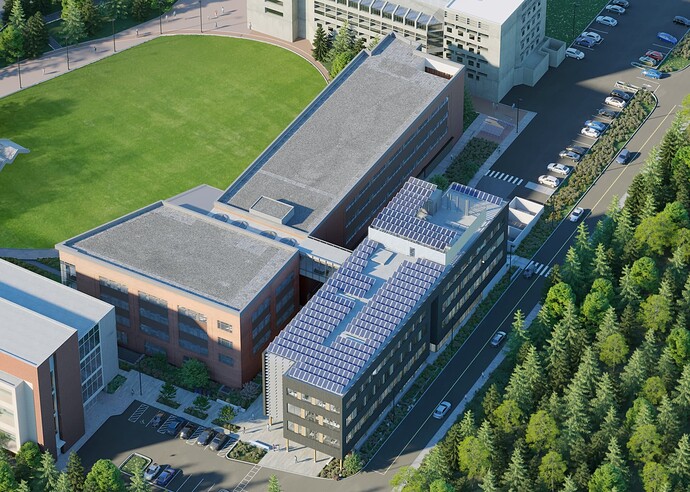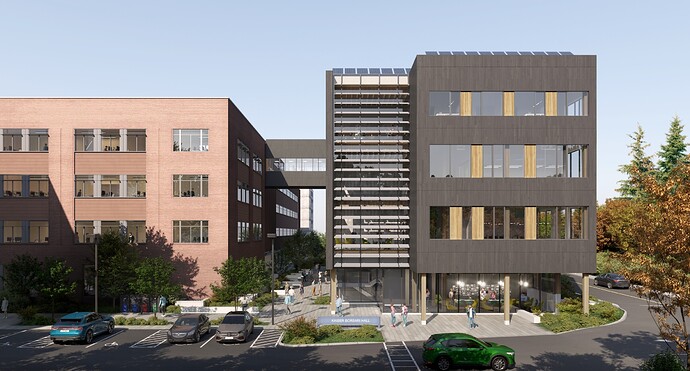Western Washington University, in Bellingham, Wash., 90 miles from Seattle, is in the process of expanding its ABET-accredited programs for electrical engineering, computer engineering and science, and energy science.
As part of that process, the university is building Kaiser Borsari Hall, the 54,000-sf new home for those academic disciplines that will include teaching labs, research labs, classrooms, collaborative spaces, and administrative offices.
Scheduled for completion next January, the four-story building is designed (by Perkins&Will) to achieve net-zero energy and carbon, and a 74% reduction in outdoor water use. All of the building’s electricity will be drawn from rooftop solar panels, and that onsite energy generation and storage are expected to achieve a 63% reduction in embodied carbon and 100% reduction in operational carbon.
Western is also targeting Living Building Challenge Energy Petal certification. An element of that pursuit is the decision to use mass timber and cross-laminated timber construction. The glulam beams and columns, and CLT decks, were harvested sustainably.
Glulam beams and columns, and CLT construction, are sustainable solutions for Western Washington University’s new campus home for its engineering and energy programs. Courtesy Perkins&Will
“We’re not just building a facility; we’re crafting a sustainable legacy for future generations,” says Michael Harder, Vice President and General Manager for Mortenson’s Seattle office. Mortenson is the CM and GC on this project. Other building team members include McLennan Design (consulting architect), Coughlin Porter Lundeen (SE), KPFF (consulting engineers), Hargis Engineers (EE), Affiliated Engineers (M/PE), McKinstry (mechanical contractor and CM), VECA (electrical contractor and CM), Associated Earth Sciences (geothermal engineer), The Greenbush Group (acoustics and elevator consultant), and Berger Partnership (landscape architect).
The mass timber is being supplied by British Columbia-based Kalesnikoff, which last month opened its third production facility. The hall’s $73.6 million construction cost is being financed by public and private funds, and the building will be one of the first publicly funded zero-energy academic facilities in the region.
Once completed, Kaiser Borsari Hall will be surrounded by existing STEM programs and connected via skybridge to Western’s Communications Facility, 20,000 sf of which has been renovated. The hall’s courses will include the nation’s only interdisciplinary undergraduate energy program.
Source: Mass Timber

